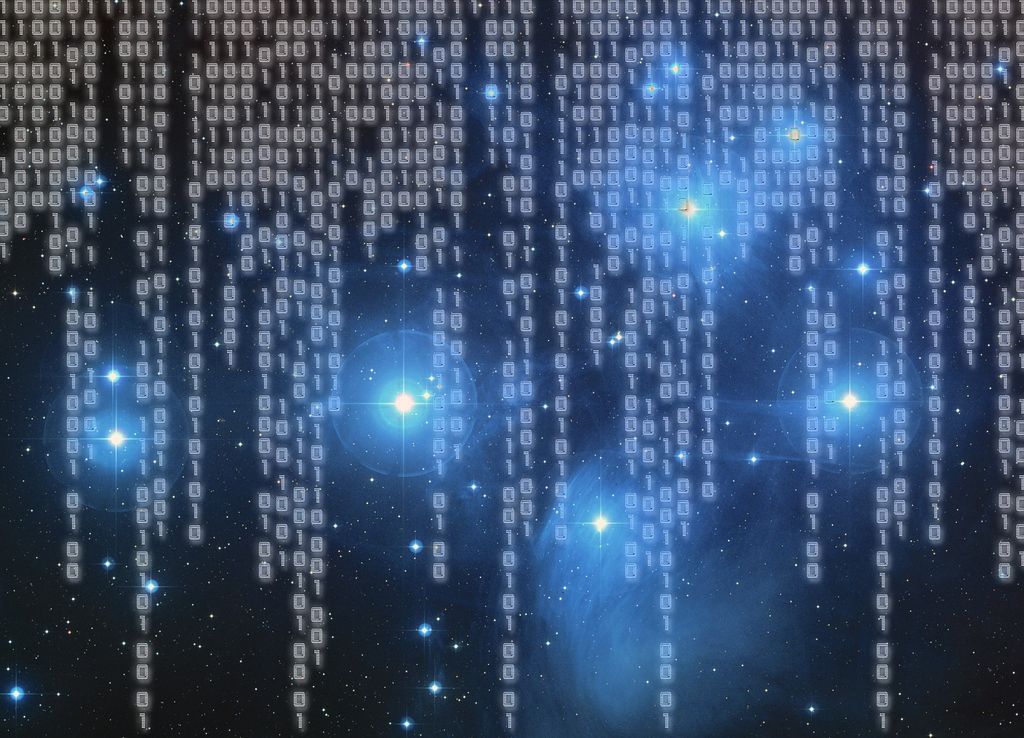Is the Universe a Computer?
 Is the universe a “giant quantum computer” or a “cellular automaton”? Are we really living in a Matrix world—made up of tiny bits of information that the universe is continually processing on a grand scale? The conception of the universe as a digital computing entity —lately advocated by Seth Lloyd of Massachusetts Institute of Technology, who calls the universe a “giant quantum computer”—has interested quantum physicists in recent decades.
Is the universe a “giant quantum computer” or a “cellular automaton”? Are we really living in a Matrix world—made up of tiny bits of information that the universe is continually processing on a grand scale? The conception of the universe as a digital computing entity —lately advocated by Seth Lloyd of Massachusetts Institute of Technology, who calls the universe a “giant quantum computer”—has interested quantum physicists in recent decades.
In a chapter published in the book Quantum Foundations, Probability and Information (Springer, 2018), CGS Associate Professor of Natural Science and Mathematics Gregg Jaeger puts this conception of the universe to a critical analysis. The chapter, “Clockwork Rebooted: Is the Universe a Computer?” examines new quantum concepts and compares them to past ideas of the universe.
Jaeger notes, “The idea of grounding physics in principles of computation and an information ontology by considering the universe as fundamentally a digital computing entity has been of increasing interest over the past several decades. It has been claimed in some versions of this approach that this entity is a cellular automaton.” Lloyd’s conception is “the most literal version of the idea,” Jaeger says, and is advocated “on the grounds that it provides a novel explanation for the complexity currently seen in the universe.”
In Jaeger’s critical analysis, he compares this picture of the physical world with past ideas of the universe as “mechanical clockwork.” Although there is value in moving physics from past mathematical approaches to discrete descriptions of physical processes, Jaeger concludes, “The claim that the universe is an enormous computer, like the thesis that it is an enormous clockwork, is unwarranted.”
Edited by Andrei Khrennikov and Bourama Toni, Quantum Foundations, Probability and Information summarizes the latest research in quantum foundations and mathematical physics. It aims to promote interdisciplinary collaboration in the areas of quantum probability, information, communication and foundation, and mathematical physics. Jaeger is one of several “leading experts in quantum foundations” who contributed chapters to the volume.
The last book Jaeger co-authored, Quantum Metrology, Imaging, and Communication (Springer, 2017), carried on Jaeger’s interdisciplinary work in the field of quantum mechanics and quantum information. It responded to the field’s growing interest in quantum entanglement and quantum-few particle systems.